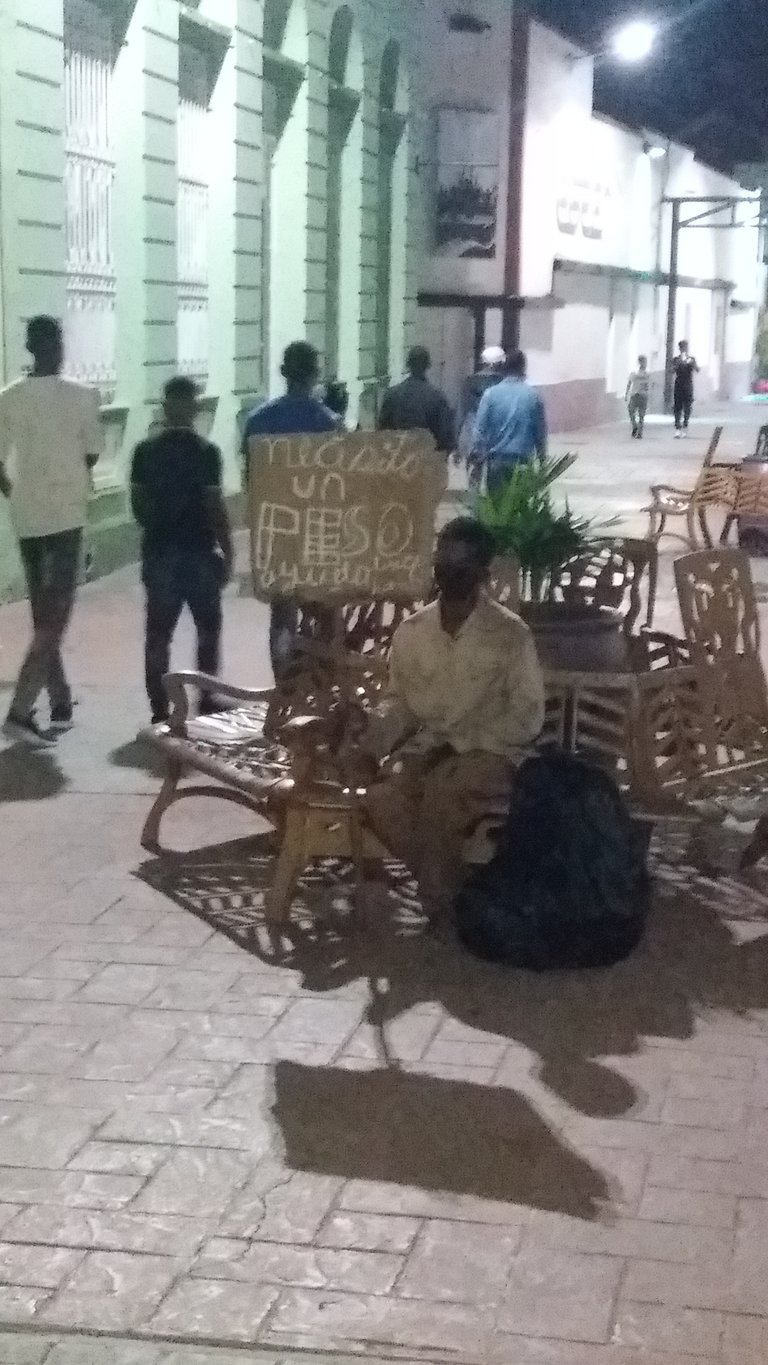
Image by Engin Akyurt from Pixabay
Educarnos y educar generalmente ha sido una cuestión de acceso o falta del mismo. Si no llegas a un sitio o conocimiento, si no te encuentras en un lugar donde puedes adquirir o crear conocimiento, sin disponer de un recurso o herramienta determinada, no puedes encontrar lo que buscas o dicen otros que debes buscar.
Educating ourselves and educating has generally been a matter of access or lack thereof. If you don't get to a place or knowledge, if you are not in a place where you can acquire or create knowledge, without having a certain resource or tool, you cannot find what you are looking for or others say you should be looking for.
Piensen conmigo en esto:
En las etapas de esclavitud, cuando empezó la expresión más cruda del colonialismo, ¿quiénes accedían a la educación y por qué? ¿Quiénes no lo hacían y por qué? ¿Qué personas se escuchaban en los espacios políticos, populares, públicos y privados? ¿Cuáles no? ¿Quiénes creaban conocimiento y qué bases éticas tenían? ¿A quién se le negaba el derecho a crear sus conocimientos o darlos como herencia al menos?
Por tanto, los que no tienen se ven en desventajas con quienes sí, pero el punto no está en el que pueda o no tener. El centro de esto son las prácticas sociales que fuerzan a los que no tienen a reproducir esas desventajas.
Think with me on this:
In the stages of slavery, when the crudest expression of colonialism began, who had access to education and why? Who did not and why? Which people were heard in political, popular, public and private spaces? Which were not? Who created knowledge and what ethical bases did they have? Who was denied the right to create their knowledge or give it as an inheritance at least?
So those who do not have are at a disadvantage with those who do, but the point is not in who may or may not have. At the heart of it are the social practices that force the have-nots to reproduce those disadvantages.
Por ejemplo, el desempleo es un mal que muchas personas juzgan, una acción que generalmente está acompañado de prejuicios. Lo que muchas veces no analizamos es por qué en ese contexto las personas que no trabajan tienen la edad que tienen, por qué en una comunidad como esa se ven casos continuos de desempleo, por qué no hay oportunidades de trabajo en su entorno más próximo.

Image by @yecier
En el caso de Cuba, existe un desánimo generalizado hacia el trabajo debido a la devaluación de los salarios producto de la inflación económica. Entonces quienes dan acceso a trabajos, tienen el deber de brindar facilidades para que haya empleos en los entornos directos de quienes siempre se han visto en la desventaja social del desempleo; y no lo hacen.
For example, unemployment is an evil that many people judge, an action that is generally accompanied by prejudice. What we often do not analyze is why in that context people who do not work are the age they are, why in a community like that one sees continuous cases of unemployment, why there are no job opportunities in their immediate environment.
In the case of Cuba, there is a generalized discouragement towards work due to the devaluation of salaries as a result of economic inflation. So those who provide access to jobs, have the duty to provide facilities so that there are jobs in the direct environments of those who have always been at a social disadvantage of unemployment; and they do not do it.

Image by Myriams-Fotos from Pixabay
En resumen: no juzgues a quienes no tienen trabajo, reclámale a las instituciones que deberían respaldar esa búsqueda de empleo como parte de su accionar para el desarrollo local y territorial. Empleo digno.
In short: do not judge those who do not have jobs, but demand that the institutions that should support the search for employment as part of their actions for local and territorial development. Decent employment.
Este es solo un ejemplo, pero te demuestra que las zonas marginadas siguen así porque hay sistemas que no dejan de marginarlas y que contiene situaciones de violencias constantes. Estas zonas no tienen acceso a las herramientas que pudieran minimizar las manifestaciones de violencia que se viven al interior de esas comunidades, por tanto, no aprenden a parar de reproducirlas.
Todas las personas cubanas tuvimos (o fuimos) en el aula de primaria alguien que iba con los zapatos rotos, a camisa sucia y estrujada, sin lavarse los dientes, sin merienda, que faltaba a clases frecuentemente, etc. Las infancias en esas situaciones quedan en desventaja, porque no aprenden que su lugar es ese, la escuela, y tienen en mente buscar alternativas para ayudar a satisfacer sus carencias.
Este es otro de los tantos ejemplos de cómo la falta de acceso incide en la educación escolar de las infancias. No piensen en este caso como algo aislado, pasa todos los días de manera frecuente y en todas las etapas ha existido. No es un caso, es un patrón social porque hay elementos que se repiten para que sucedan estas realidades.
This is just one example, but it shows you that marginalized areas remain that way because there are systems that continue to marginalize them and that contain situations of constant violence. These areas do not have access to the tools that could minimize the manifestations of violence that are experienced within these communities, therefore, they do not learn to stop reproducing them.
All of us Cubans had (or were) in our elementary school classrooms someone with broken shoes, with a dirty and wrinkled shirt, without brushing his teeth, without a snack, who frequently missed classes, etc. Children in these situations are at a disadvantage, because they do not learn that this is their place, the school, and have in mind to look for alternatives to help meet their needs.
This is another of the many examples of how lack of access affects children's school education. Do not think of this case as something isolated, it happens every day on a frequent basis and has existed at all stages. It is not a case, it is a social pattern because there are elements that are repeated for these realities to happen.
Mi llamado en este texto es que no juzguen. En especial aquellos que tienen poder de decisión para dar o quitar oportunidades a las personas les digo que: si llegan a ti con interés de educarse o educar, pero no cumple con algún requisito x o y, bríndales alternativas y opciones para acceder a eso que te piden.

Image by Harish Sharma from Pixabay
Pueden usar el entorno online u offline para facilitarles recursos (materiales de estudio en el tema), promover acciones periódicas que fomenten la equidad en entornos marginados aplicando enfoques de género, antirracista, entre otros, pues cada grupo tiene una realidad diferente. También pueden crear oportunidades gratuitas o con precios mínimos, elaborar paquetes de contenidos para personas de otros territorios interesados esas oportunidades.
Listo, ya tienes algunos tips para cuando conozcas a alguien que quiera aprender.
My call in this text is not to judge. Especially those who have decision-making power to give or take away opportunities to people I tell them: if they come to you with interest to be educated or educate, but does not meet some requirement x or y, provide them with alternatives and options to access what they are asking for.
You can use the online or offline environment to provide them with resources (study materials on the subject), promote periodic actions that promote equity in marginalized environments applying gender and anti-racist approaches, among others, because each group has a different reality. They can also create free opportunities or with minimum prices, elaborate content packages for people from other territories interested in these opportunities.
That's it, you already have some tips for when you meet someone who wants to learn.

